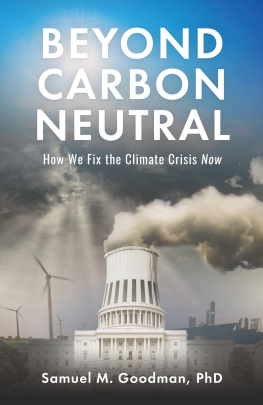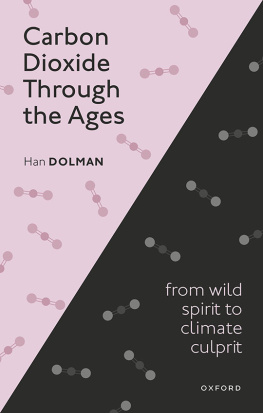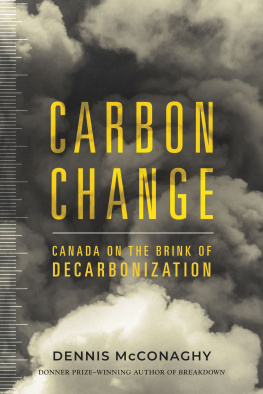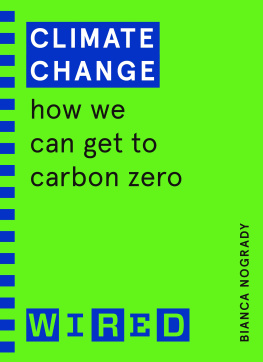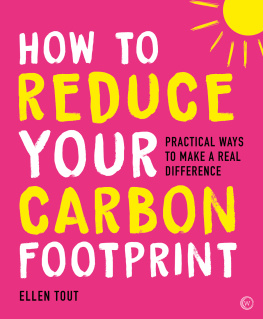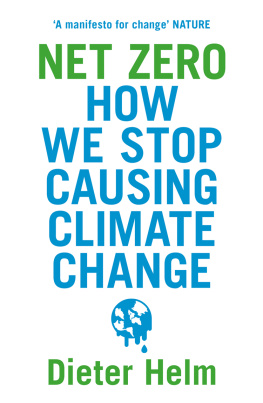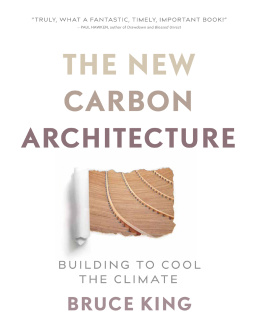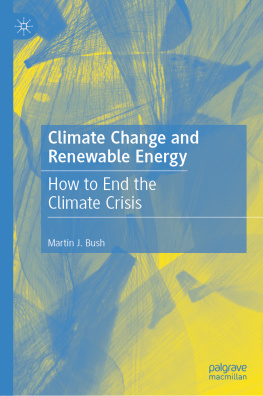This book is dedicated to my wife, Ashley, whose love and support made the entire project possible.
Authors Note
As of the publication of this book, we are in the midst of the coronavirus pandemic that is raging across the world. This disaster will profoundly impact society for years to come beyond the short-term impacts to human health and the lives lost. With millions out of work, facing eviction, or experiencing a rapid decline in their material conditions, it is extremely likely that we are facing an economic situation unrivaled in severity since the Great Depression. The recovery will need to take the same form now as it did then: massive investments to put people back to work.
The programs of yesteryear built infrastructure across the country, leading us out of the Depression and providing a foundation for future prosperity. We can and should do the same now for climate change. Doing so would mitigate both crises, making the country more stable after the pandemic and ensuring stability by safeguarding the future. In addition to those benefits, making climate change-mitigating investments will provide a renewed sense of shared purpose. Achieving a successful energy transition will inject trillions of dollars into the economy and put millions back to work, for there is certainly much work to be done. We need only make the decision to begin.
Introduction
The world burned in 2019. First, there was Brazil, where tens of thousands of human-made fires spread out of control in the usually nonflammable Amazon Rainforest, pushing it closer to an irreversible collapse.
Each of these conflagrations started with a different spark, but the cause was the same. The world is burning because of climate change. Australia was in the middle of a historic drought that made the landscape a tinderbox. In each case, the root cause was the same: rising heat, drought, and changing weather patterns.
Climate change causes more disruptions than just drought- and heat-driven fires. Nonetheless, at least these devastating fires drew massive attention while they were ongoing. People will only ignore scientific truths for so long, and personal experience with deadly heatwaves and watching your home ignite tends to burn away the blinders of denial so much quicker. With daily images across the media, perhaps, finally, some correction would happen.
And then, nothing happened.
Denialism remains strong. The global response to climate change was basically unchanged, and the justification for inaction followed familiar patterns. Brazils government doesnt publicly recognize the contributions of climate change at all, labeling it an insidious plot from a left-wing cabal. If the first step toward solving a problem is admitting one exists, too many still havent started the journey.
Even acknowledging a problem exists does not guarantee a solution. Instead, we move into a more abstract realm to justify inaction: cost. Those who wish to preserve the status quo on climate policy, regardless of their incentives, have largely turned to a monetary argument. A substantial portion of the proposed Green New Deal response was centered on the predicted cost. While sometimes conceding the reality of climate change, this framework buries the absolute imperative of the crisis. The implication is that there are scenarios in which the costs outweigh the probable or even possible benefits of taking action.
Once the discussion turns to loans, taxes, and spreadsheets, it is easy for people to lose focus and disengage from the issue. It also provides a smokescreen so those in power can provide the illusion they are reasonable about the problem but only dedicated to common-sense solutions. The result is no different than denying climate change whole clothnothing happens. Most frustratingly, inaction is wholly unjustified when considering a fair cost-benefit analysis of our predicament. Nature does not care about markets. Physics does not care about financial institutions. If you truly want an accurate cost-benefit analysis, here is the bottom line: you either reverse climate change or you lose everything.
The Cost of Inaction
Please, say these words out loud: I am dead; my children are dead; my grandchildren are dead; everyone I have ever known or have yet to meet is dead. We are dead because of climate change.
That is the cost of inaction. Our bodies may still be moving, but we are presently dead because nothing we do carries any meaning so long as climate change is allowed to drive us toward the abyss. We can take pride in our homes and the objects weve filled them with, but they will be swept away. The wildfires that are already commonplace on continent-wide scales will only become more frequent and devastating, consuming our possessions and driving people from their property. The years spent being fiscally responsible will have been made pointless, as any gains are wiped from existence in mere moments.
As a people, we can extol the virtues of the things weve built, feats weve achieved, and the secrets of the universe weve unlocked. When civilization collapses, it will be as if these accomplishments never happened. It wont matter that weve landed on the moon if only a scramble for survival occupies our thoughts. Curing diseases wont do any lasting good if the entire system falls under the weight of resource shortages and long-forgotten pathogens emerging from the permafrost. It will be as though climate change has erased our entire history.
You may seek joy in raising your family, finding comfort knowing a part of you will live on after you are gone. However, your descendants are unlikely to survive for long. A changing climate means more drought and famine, more crop-eating insects during longer and hotter summers, and floods that wipe away plantings. A world subject to climate change is a hostile place that cannot support eight billion people.
Climate change will wipe away all traces of our existence, and we must internalize this realization before any progress can happen. That is the only way we can truly make reversing it our overriding priority. It wont matter if we reform any other part of our society in the meantime. If we dont solve climate change, literally nothing else will matter. This understanding is neither natural nor comfortable to confront, but it must be if we are to reverse the inaction, apathy, and deception that have plagued our response for decades. Our only hope of reclaiming our lives is to do something about climate change.
Hope
Climate change is a vast, all-encompassing threat that humans innately lack the ability to grapple with it. Our lack of comprehension is one of the reasons why we have not yet been able to mount a response in proportion to the threat. Consider the amount of carbon dioxide, the primary driver of climate change, humans add to the atmosphere. We emit around thirty-seven billion tons every year. We can do the math and measurements, but those numbers are not fully intelligible, not to an individual.

